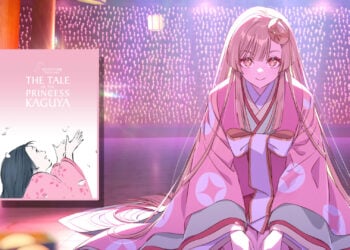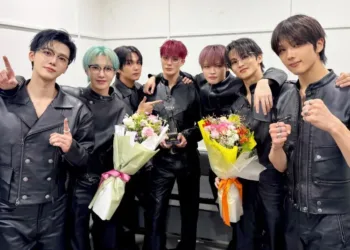Get ready for the most provocative literary adaptation of the decade! Emerald Fennell’s highly anticipated “Wuthering Heights” has unveiled its first trailer, promising a bold and erotically charged interpretation of Emily Brontë’s timeless classic. Starring Margot Robbie as Catherine Earnshaw and Jacob Elordi as Heathcliff, this Valentine’s Day 2026 release is already generating massive buzz across Hollywood.
Table of Contents
Wuthering Heights Movie Details at a Glance
| Element | Information |
|---|---|
| Director | Emerald Fennell (Oscar winner, Promising Young Woman) |
| Lead Cast | Margot Robbie, Jacob Elordi |
| Supporting Cast | Hong Chau, Martin Clunes, Owen Cooper |
| Release Date | Valentine’s Day 2026 (February 14) |
| Studio | Warner Bros. |
| Budget | $80 million |
| Genre | Gothic Romance/Drama |
| Tagline | “Drive Me Mad” |
Why This Adaptation is Different

Fennell’s version promises to be “a more intense and visually daring interpretation, aiming to bring new energy to Brontë’s timeless story of passion, revenge, and obsession.” Unlike previous adaptations, including William Wyler’s 1939 classic and Andrea Arnold’s 2011 version, this iteration embraces the raw sensuality that many feel was sanitized in earlier films.
The Oscar-winning director behind “Promising Young Woman” and the controversial Netflix hit “Saltburn” brings her signature provocative style to the Yorkshire moors. Early test screenings have described the film as “aggressively provocative and tonally abrasive,” with one controversial scene involving a public hanging drawing particular attention.
The Star Power Behind the Project
Margot Robbie as Catherine Earnshaw
Fresh off the global phenomenon that was “Barbie,” Margot Robbie takes on one of literature’s most complex female characters. Robbie, who recently led the global hit Barbie, will also appear later this month opposite Colin Farrell in “A Big Bold Beautiful Journey.” Her ability to balance commercial appeal with challenging dramatic roles makes her perfect for Catherine’s passionate, destructive nature.
Jacob Elordi as Heathcliff
Elordi, known for “Euphoria,” “Priscilla,” and “On Swift Horses,” will next star in Guillermo del Toro’s “Frankenstein.” His casting as Heathcliff has sparked debate among purists, but his intense screen presence and ability to portray complex, tortured characters seems ideally suited for Brontë’s brooding antihero.
Speaking about the project, Elordi told Deadline: “The performances from everyone – it’s breathtaking. It’s an incredible romance. It’s a true epic. It’s visually beautiful. The script is beautiful. The costumes are incredible.”
The Bidding War That Shaped the Film
The project’s journey to the screen was as dramatic as the story itself. The film sparked a major bidding war in 2024 following the streaming success of Fennell’s “Saltburn.” Reports suggest Netflix offered $150 million, but Warner Bros. secured the rights for $80 million, with both Fennell and Robbie favoring a theatrical release.
This decision reflects Hollywood’s renewed commitment to cinematic experiences, especially for prestige literary adaptations that deserve the big-screen treatment.

Addressing the Controversy
The Casting Debate
The choice to cast Elordi as Heathcliff has attracted backlash from some fans of the novel, who noted Brontë’s description of the character as having darker skin. However, casting director Karmel Cochrane defended the decision, emphasizing artistic interpretation over literal accuracy.
“There was one Instagram comment that said the casting director should be shot,” she said. “But just wait till you see it, and then you can decide whether you want to shoot me or not. But you really don’t need to be accurate. It’s just a book. That is not based on real life. It’s all art.”
What to Expect from Fennell’s Vision
Emerald Fennell’s track record suggests audiences should prepare for an unflinching exploration of desire, power, and destruction. Her previous work demonstrates a fearless approach to uncomfortable truths about human nature, making her an ideal choice for Brontë’s gothic masterpiece.
The film’s tagline “Drive Me Mad” perfectly encapsulates the obsessive passion that defines the story. Billboards promoting the film have already gone up in the US and UK with the tagline “drive me mad,” which also features in the trailer.
For fans interested in how literary adaptations influence modern entertainment, explore our latest entertainment coverage for insights into storytelling trends across media.
The Valentine’s Day Strategy
Releasing on Valentine’s Day 2026 positions “Wuthering Heights” as counter-programming to typical romantic comedies. This gothic love story offers couples something darker, more intense, and psychologically complex than standard date-night fare.
Warner Bros.’ confidence in a theatrical release during this prime romantic weekend suggests they believe Fennell’s vision will resonate with audiences seeking sophisticated, adult-oriented content.
Looking Ahead
With its star-studded cast, acclaimed director, and one of literature’s most enduring stories, “Wuthering Heights” appears positioned to become 2026’s most talked-about literary adaptation. Whether audiences embrace Fennell’s provocative vision or find it too intense remains to be seen, but indifference seems impossible.
The film promises to join the ranks of bold literary adaptations that dare to reimagine classic stories for contemporary audiences, potentially setting new standards for how period dramas can engage modern viewers.
FAQs
Q: How does Emerald Fennell’s “Wuthering Heights” differ from previous adaptations?
A: Fennell’s version promises to be significantly more erotically charged and visually intense than previous adaptations like William Wyler’s 1939 version or Andrea Arnold’s 2011 film. Early test screenings describe it as “aggressively provocative,” with Fennell bringing her signature bold storytelling style from “Promising Young Woman” and “Saltburn” to Emily Brontë’s gothic romance.
Q: Why was there controversy around Jacob Elordi’s casting as Heathcliff?
A: Some fans criticized Elordi’s casting because Emily Brontë’s original novel describes Heathcliff as having darker skin, leading to debates about representation and faithful adaptation. However, casting director Karmel Cochrane defended the choice, emphasizing that the film prioritizes artistic interpretation over literal accuracy to the source material, stating “It’s just a book… It’s all art.”








